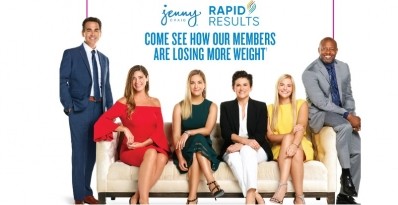Atkins pushes regulators to reconsider the potential benefits of a low-carb diet for some Americans

“The 2015 Dietary Guidelines was the first time that FDA warned against a low-carbohydrate diet, and in the previous round they made a statement that low-carbohydrate diets are not recommended,” but as science continues to evolve and America’s struggle with diet-related chronic diseases deepens “we want FDA to recommend a low-carbohydrate diet as a viable option in the next dietary guidelines,” Colette Heimowitz, vice president of nutrition and education at Atkins Nutritionals, told FoodNavigator-USA.
At the Food & Nutrition Conference & Expo in Washington, DC, last month, she explained that while the current dietary guidelines related to carbohydrate intake are “fine for half of the population who are thin and healthy, about 52% of the population is diagnosed as prediabetic or diabetic, which is a carbohydrate metabolism disorder.”
For this group “we are essentially force-feeding carbohydrates on a population that doesn’t metabolism them very well,” and they could be better served by a recommendation to follow a low-carbohydrate diet, or at a minimum a recommendation to ask their healthcare provider about a low-carb diet, she said.
For support, she noted, the American Diabetes Association earlier this year acknowledged that a low-carbohydrate diet as part of a nutrition therapy could help some people manage their diabetes.
In a research paper, which was published online in October, ADA noted that “there is no single ratio of carbohydrate, proteins and fat intake that is optimal for every person with type 2 diabetes,” but there are different eating patterns that emphasize food for demonstrated benefits and minimize foods for demonstrated harm.
One example, is a low-carbohydrate Mediterranean eating pattern, which one trial showed was correlated with a 37% reduction in the need for glucose-lowering medications over a four year period compared with patients assigned a low-fat diet.
“They soft peddled it a little bit, but the fact that they said it was a viable option for therapeutic approach, I think is huge. It is a big step,” Heimowitz said. “The reality is, though, [ADA] was forced to go in this direction, because they know the population and demographic needs that in order to avoid excessive medication.”
She is hopeful the US Dietary Guidelines Committee will take a similar approach when crafting the 2020 recommendations.
“I am not asking them to send the food pyramid on its head – that is asking too much. I just want them to recognize it is a viable option. That is what I am hoping for,” she said.
Atkins also nominated experts for the dietary guidelines science advisory committee in an effort to increase the “diversity of expertise on the panel,” Heimowitz said. She explained that many of the same experts serve each round, and it is Atkins' hope that someone with knowledge about the benefits of a low-carb diet will be selected to participate on the committee.
Redefining ‘healthy’
Heimowitz also is lobbying the FDA to make a similar measured approach to a low-carb diet as it re-evaluates the definition of ‘healthy.’
In comments made this summer during a public meeting to discuss FDA’s Nutrition Innovation Strategy, Heimowitz argued that any new definition of the term ‘healthy’ should focus on increasing the intake of healthy fats, rather than decreasing the intake of a specific type of fat, and should also consider research showing reduced fat intake is not beneficial when replaced with refined carbohydrates.
She also voiced her support for planned updates to the Nutrition Facts panel, and urged FDA to take “it one-step further,” by placing “a limit on total and added sugar amounts – as well as a requirement that products labeled as ‘healthy’ represent a meaningful contribution to the new daily value for fiber.”
Consumer outreach continues
In addition to lobbying the government, Atkins continues to reach out to consumers through educational campaigns such as its “hidden sugar” advertising campaign.
Heimowitz explained that the campaign, which launched in 2017, “tries to education people on the impact of carbohydrates on the body and how to avoid spikes in the blood sugar.”
She explained the campaign grew out of research that showed while consumers are aware of sugar grams, “there is a disconnect for many people who don’t realize that carbohydrates convert to sugar in the body. So they don’t see the hidden sugar in a bagel, but your body does.”
For consumers who are trying to reduce or minimize carbs, Atkins continues to offer convenient options that will help them stay on track, such as a recently launched trio of wafer cookies that taste both decadent and light and crispy at the same time, said Heimowitz.


















